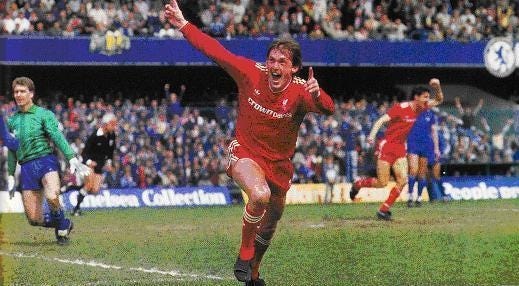No season ever started in circumstances like this one. For any club. ‘Inauspicious’ doesn’t remotely do it justice.
For a start, for the first time since Liverpool’s debut in 1964/5, there was no European football. 21 consecutive seasons of European involvement came to an end following the post-Heysel ban.
For the first time in the club’s history, a player-manager was taking the reins. He’d never managed before.
But most of all, the club was wrestling with the fall-out of a cataclysmic disaster less than three months before the new season began.
The shadow of Heysel darkened not only Liverpool. Its shadow spread across the entire game, in England and abroad, its consequences yet to be calculated, its impact still to be come to terms with.
That the season culminated in Liverpool achieving something that even this illustrious high-achiever had never done before or since now looks all the remarkable in the sharp relief of hindsight.
That’s without even mentioning the first ever Merseyside FA Cup Final.
The summer of 1985 was one of massive introspection for Liverpool Football Club and its supporters. A time of genuine crisis, for the club and for the entire hooliganism-blighted game in England. A time to search for the very soul of football, and to examine the very rationale behind supporting a football club. Somewhere deep within each individual, this process was underway. Some vowed it was the end for them, that they would never go to the match again. There are many who held to that, and still do.
This is how I described that post-Heysel close season in 1985, in my book about the tragedy, “From Where I Was Standing”:
The rest of this article is for Dynasty Subscribers only.
Keep reading with a 7-day free trial
Subscribe to Dynasty – The Tomkins Times to keep reading this post and get 7 days of free access to the full post archives.




